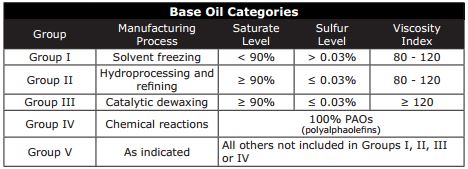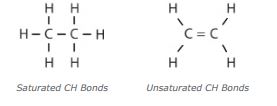The question often asked is why synthetic oil? Is it really better than conventional oil? Is it worth the price difference? Choosing the right oil for your investment is important. I choose AMSOIL for a number of reasons.
I have had first hand experience with AMSOIL for years. It is the only oil I use in my Chevrolet Silverado with a Duramax Diesel, Honda Accord, Honda CRV, my beloved 32 Ford Roadster, Harley Davidson Street Glide, Polaris XPT, Toro zero turn, Honda snow blower, Yamaha Outboard, and Onan generator. Yeah I buy a lot of AMSOIL but they make it easy and I sleep well at night knowing I have great protection. Enjoy this article and remember Preferred Customers receive 25% off on all products and free shipping on all orders 100.00 or more. Shop now

Oil, whether synthetic or petroleum-based, consists of molecular chains of hydrogen and carbon atoms, referred to as hydrocarbons. Petroleum crude oil is a thick, highly flammable dark-brown or greenish liquid with high energy densities. Many contaminating elements exist in this complex mixture of hydrocarbons, including sulfur, nitrogen, oxygen and metal components such as nickel or vanadium. Petroleum crude oil is the raw material
used for a wide variety of petrochemicals, including solvents, fertilizers, plastics and lubricants.
The oil refining process separates the various types of molecules in the oil by weight, resulting in a concentrated batch suitable for today’s uses such as gasoline, LPG, kerosene or base oils for lubricants. The chemical composition of conventional motor oil can vary substantially and depends on the raw crude oil refining process.
While petroleum base oils are refined, synthetic base oils are manufactured and can achieve a higher performance level. Synthetic oil is chemically engineered for a certain molecular composition with a tailored and uniform structure. Such fine-tuned control over the final molecular composition of synthetic oils is the key to the superior performance properties of these fluids. Designing molecular structures in a planned and orderly fashion results in molecules, and an end-product, that are far more stable than their refined petroleum counterparts.
Base Oil Groups
The entire range of base oils, including conventional petroleum products, are divided into five groups based on the level of saturates (saturated molecules), sulfur and viscosity index. In general, the chemical composition and performance properties of the base oil categories improve with advancing group number. For instance, Group I has a lower concentration of saturates than Group II, while Group II has a lower concentration of saturates
than Group III base oils. Today, Group III, Group IV and Group V base oils are considered synthetic.

Saturated molecules contain a higher percentage of carbon-hydrogen (CH) bonds, which limits the available sites to which other, harmful molecules can attach. When other molecules, like oxygen, attach to oil molecules, they break down the molecular composition of the oil and weaken its performance. Saturated molecules are beneficial in lubricating fluids because they remain stable longer, resulting in a more durable lubricant. Unsaturated molecules have fewer single carbon-hydrogen bonds and are therefore less stable.

Sulfur is a naturally occurring, inorganic element that readily reacts with oxygen molecules and is detrimental to oil performance. Synthetic base oils have less sulfur than conventional base oils.
Viscosity index refers to the temperature-viscosity relationship of lubricating fluids. Oils with a high viscosity index (VI) are less affected by temperature; those with low VI are affected more. Oils with a VI less than 120 (Groups I & II) are more susceptible to viscosity variance due to temperature. The viscosity index of synthetic base oils is higher than that of conventional petroleum base oils.
Pure, Uniform Molecules Form Strong, Stable Lubricants
Petroleum oils have molecular structures that are randomly organized and, consequently, have limited performance abilities. Their varied and inconsistent molecular structure results in less film strength and lubricity. Their paraffinic wax content also makes them more susceptible to viscosity variance and cold-temperature flow problems.
On the other hand, synthetic base oil molecules are chemically controlled, which provides increased film strength and lubricity over petroleum oils.
The performance qualities of base oils have a marked impact on the performance qualities of the finished product. Synthetic base oils provide key features and customer benefits including better wear protection, more horsepower, increased engine cleanliness, improved fuel economy, easier cold starts and longer oil life.
Preferred Customers receive 25% off on all products and free shipping on all orders 100.00 or more. Shop now
